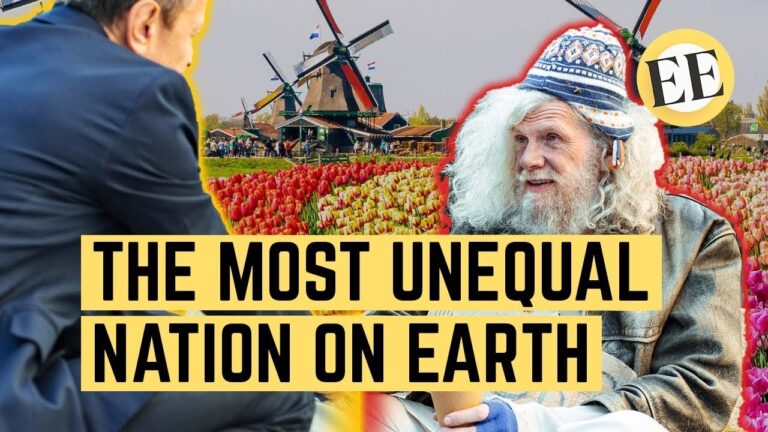Learn How the Dutch Economy Shows that We Cannot Reduce Wealth Inequality by Paying Taxes
This is the Netherlands, a picturesque nation filled with windmills, tulip fields, and uhh coffee shops. The nation is looked to by many as an extremely forward-thinking place that practices some pretty progressive policies.
The nation has an incredibly strong social security system, with universal healthcare, robust retirement pensions, as well as allowances for maternity leave. And These kinds of policies are mirrored in other areas as well, the nation is home to relatively high tax rates, and the protections for employees are very strong almost to the point that people joke it is impossible to be fired in the Netherlands.
So this kind of looks like a liberal paradise right? Well, it would if it were not hiding a dirty little secret. This postcard-perfect little nation is according to the world bank the most unequal place on earth, and the extent of the inequality is simply staggering. We have explored south Africa on the channel before, which normally gets this less than a desirable title.
And if you were to pose this question to google, it’s what you would walk away thinking. But this isn’t the whole story. In terms of wealth inequality in recent years, South Africa has been pretty tame. The Netherlands by contrast is the only country on earth that is more unequal than the world itself. So what is going on here?
Similar policies to the ones that have been commonplace in the Netherlands for decades are being proposed by politicians in places like the United States as a way to curb the issue of wealth inequality. But if we look at the results it doesn’t look like they will do that at all. So, to really understand this we are going to look at a few key issues.
How did the Netherlands of all places become the land of inequality? What does this teach us about the nature of wealth in the modern world? And how can this help us create more robust economic policies that work to benefit everyone?
Economics Explained


